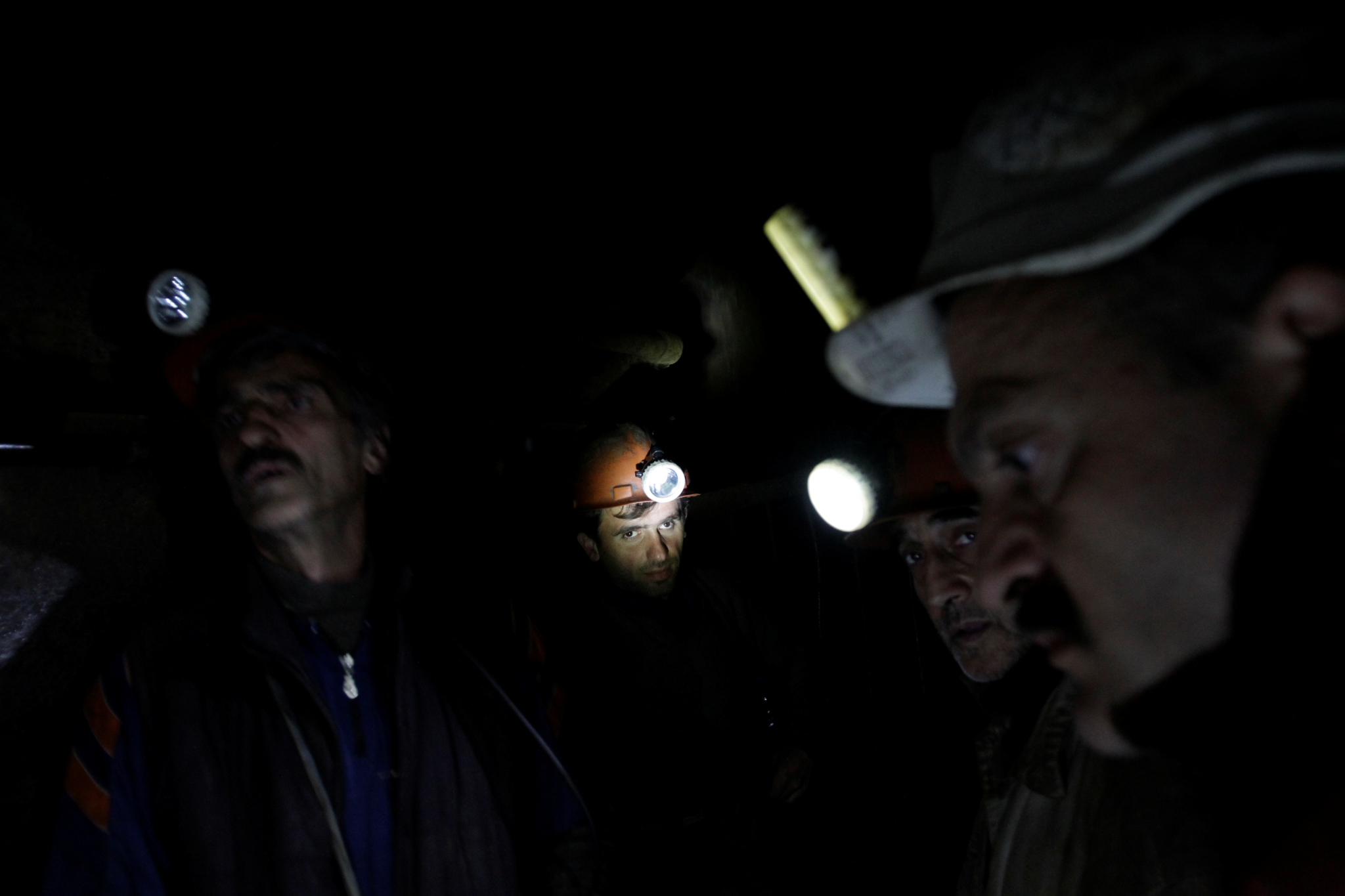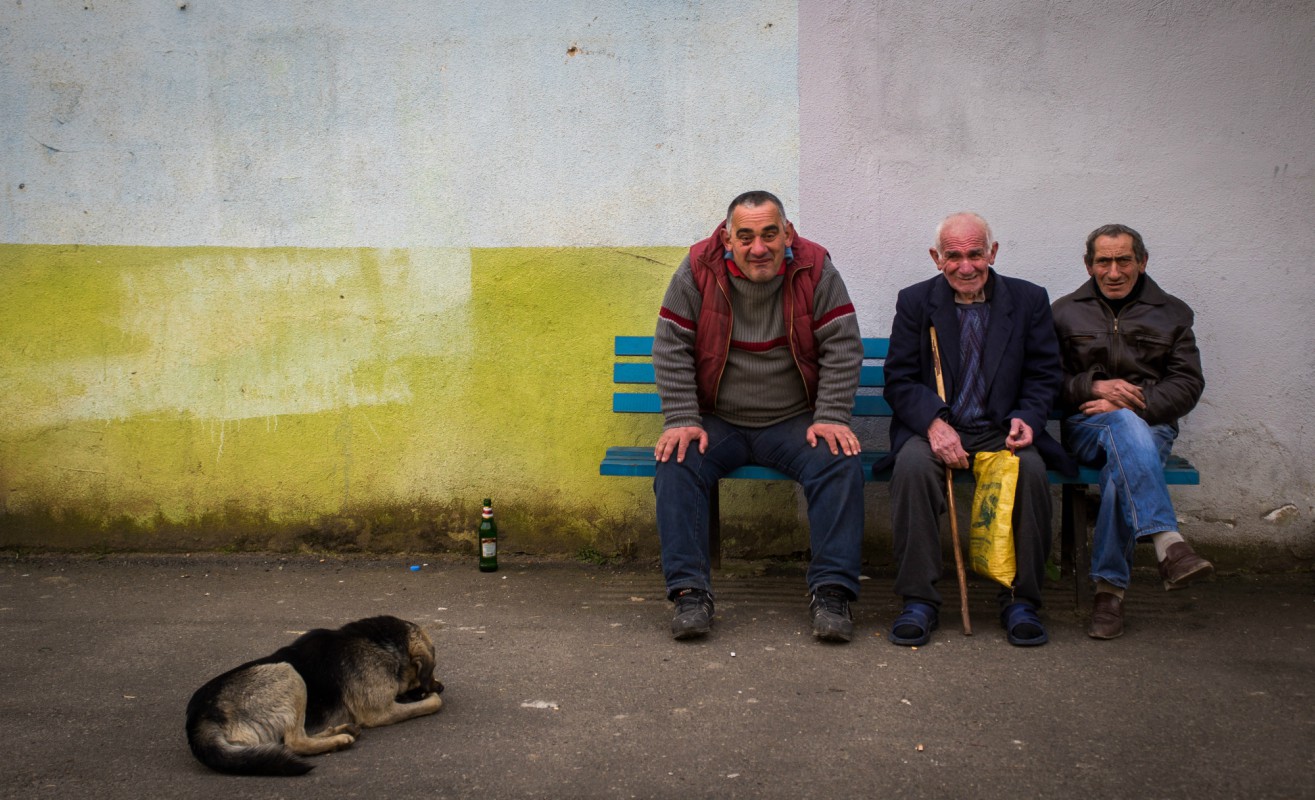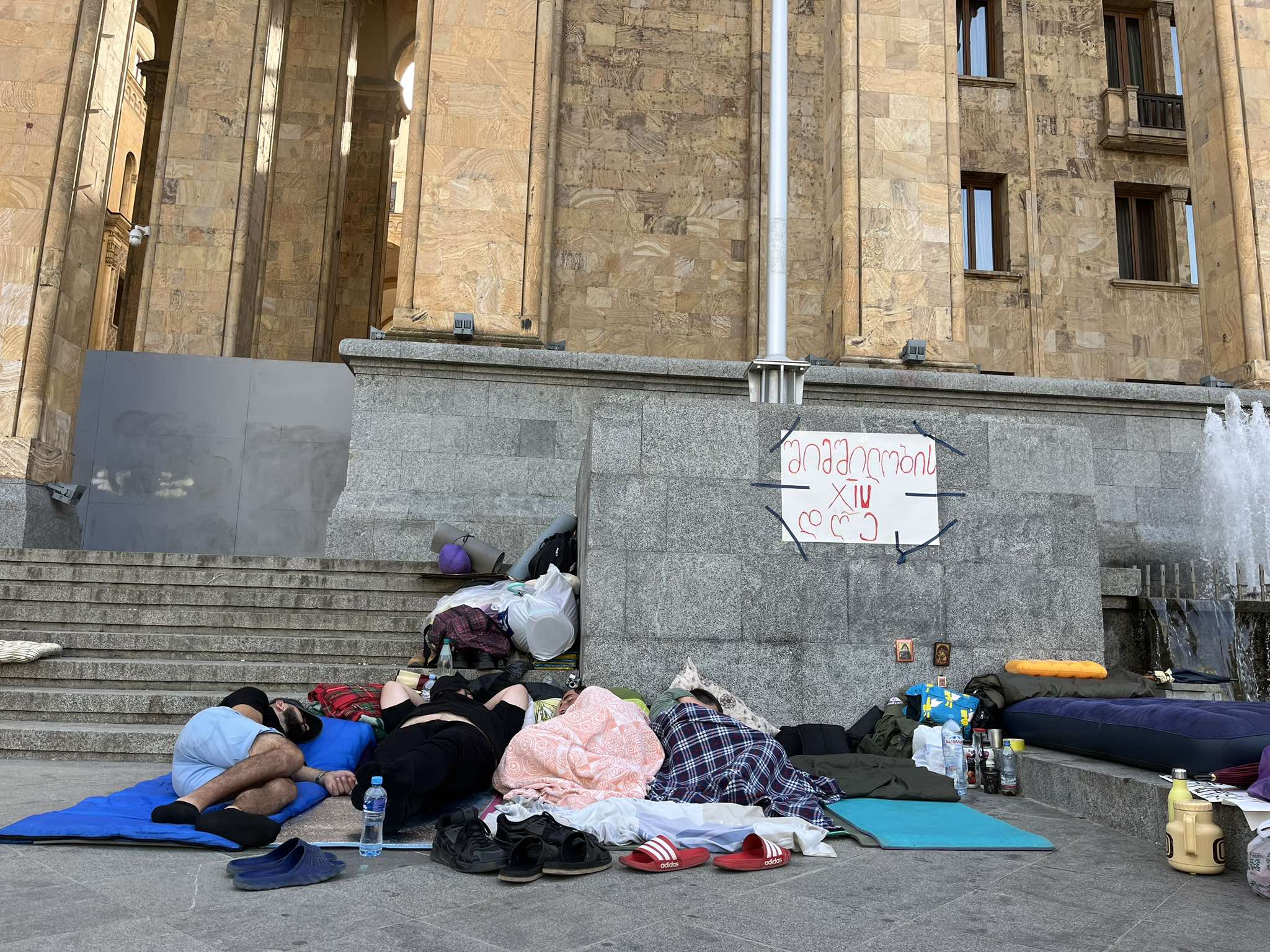
Shukruti residents protest in Georgia
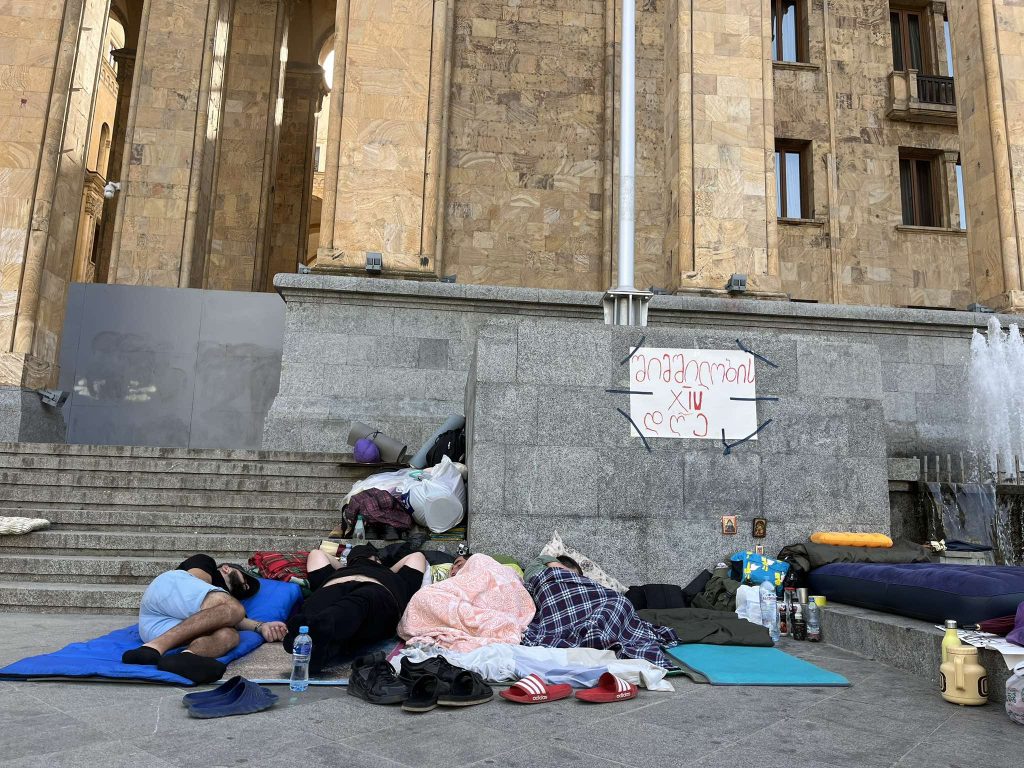
64-year-old Zoia Popkhadze has been protesting in front of the Parliament building in Tbilisi for eight days. She is joined by fellow villagers from Shukruti, in the Chiatura municipality, where manganese mining operations are taking place. According to the residents, these activities have significantly damaged most houses and caused large cracks in the ground.
Villagers of Shukruti first noticed cracks in their homes several years ago, leading to an initial protest and an eventual agreement with the mining company. However, they claim that Georgian Manganese, the company responsible for the mining, violated the terms of the agreement, prompting continuous protests for the past six months.
To draw attention to their plight, some protesters have come to Tbilisi’s Parliament building, while others continue protesting at home. Despite their presence outside the Parliament, the government has yet to send a representative to meet them. The primary concern for Shukruti residents is the safety of their families, as they say the cracks in their homes have become so severe that it’s uncertain when the houses might collapse and if the occupants will survive.
“We live in constant fear in these damaged houses. How long can this fear last?! It wears on our nerves and hearts. Seeing your own property crumbling affects a person. For example, in my home, I can’t even set a chair or place a plate on the table properly; everything feels upside down,” Zoia shares.
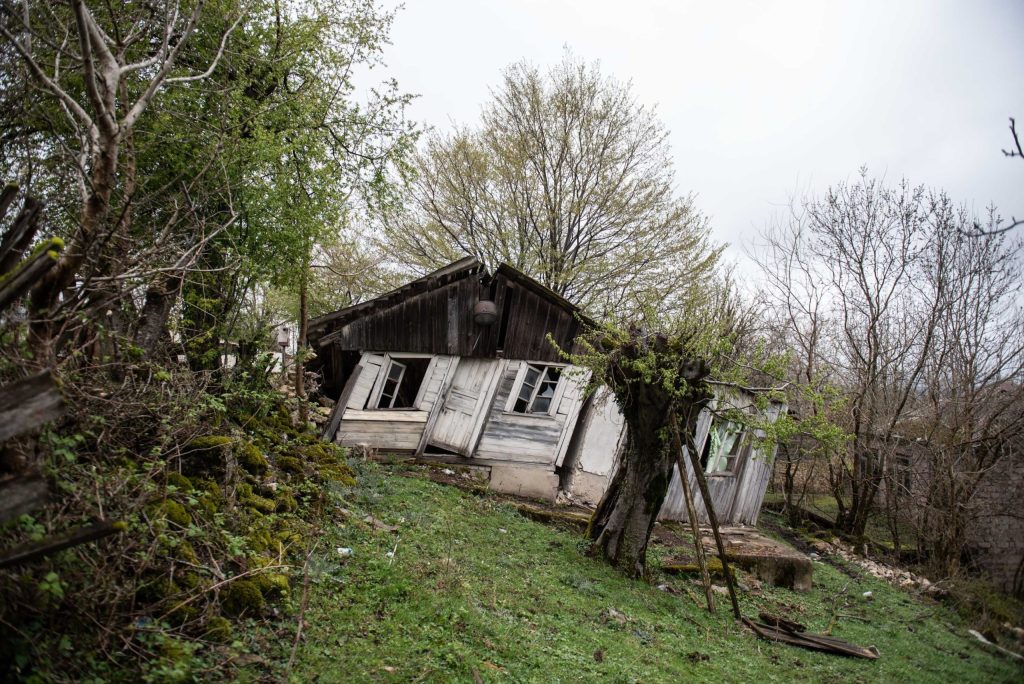
Manganese, widely used in metallurgy and various industries, is found in the soil. Experts note that Georgia’s manganese deposits are of high quality, with large industrial reserves and convenient geographic location.
Around 20 people, including Zoia, are gathered outside the Parliament. Some are on hunger strike, while others have cut their faces in protest. They spend their nights on thin blankets, with police officers spotted nearby.
Another protester, Giorgi Neparidze, recalls that on the first night of protest, the police did not allow them to set up tents or use blankets, forcing them to sleep on cold stones.
“This Parliament, where we now sit, has just passed a law on family values. We are defending our families, our homes, and our ancestors’ graves. If there are other family values related to protecting family, private property, parental homes, ancestral graves, churches, and monasteries, let them come out and explain. Perhaps one meeting could solve this problem, but they don’t even dare to come out and listen,” says Giorgi.
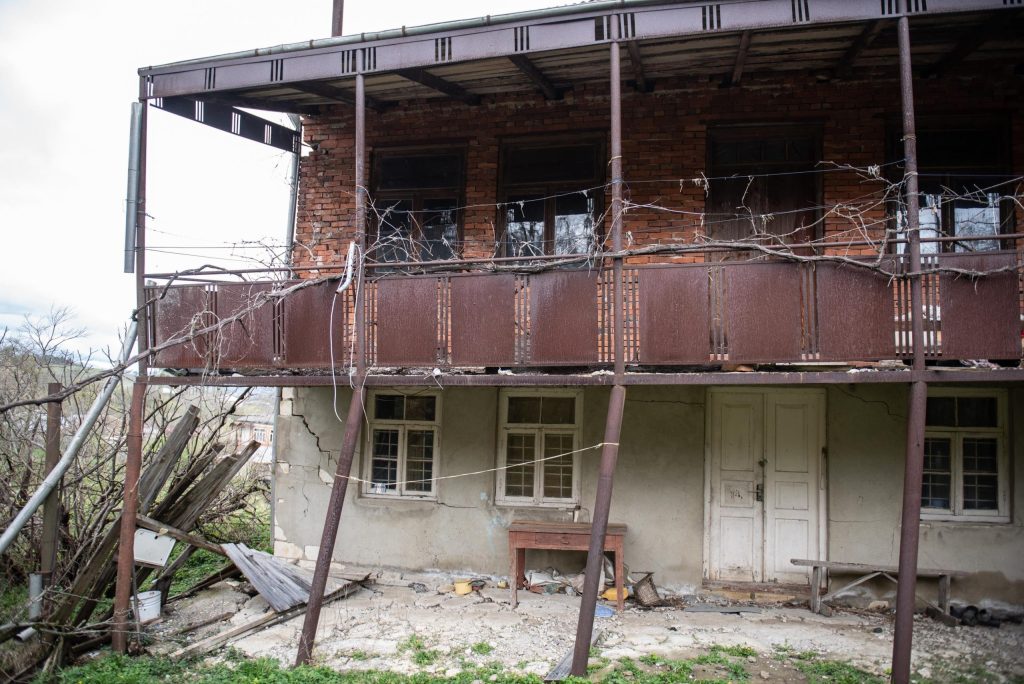
“When we arrived here, we had high hopes. Now, as we stand here outside the Parliament, no one comes out. Hope has vanished, and I feel terrible. I am ill, and so is my husband. People wonder how we manage, but I am deeply distressed, as is my husband, who has had two heart attacks. We’ve been on the streets for six months. I might die here; that’s how I feel,” Zoia confides.
In addition to the cracks in homes, Zoia says there have been significant environmental changes in the village. “Wells have dried up, springs have dried up, there is no drinking water, roads are deformed, the ground is cracking, and there is a huge two-and-a-half-kilometer crack running through the village that could start moving and swallow the entire village. Trees, even blackthorn, which grows everywhere, are drying up, and dogwood is rotting and falling,” she says.
The protesters claim that even the village’s only school is damaged and must be dismantled, forcing children to attend school in a neighboring village. Standing next to Zoia, fellow villager, 62-year-old Dali Kuaptaadze, adds that she used to gather four to five bags of walnuts, but now the yield is only two bags.
What the Shukruti villagers want most is an inspection.
“We need to know what’s happening under our houses, if we can sleep peacefully. The government should check everything and reassure us; maybe we have no reason to worry,” Dali insists.
If the inspection shows that living in their homes is unsafe, Shukruti residents will demand compensation: “We’re not asking for a Broadway, we’re not asking for a France. Let them restore what we had: our land and buildings. Let them spend as much money as they want—one lari or more—it doesn’t matter. We have no water, no school, they’ve completely stripped the village of its functionality. We lost our wells; everything is destroyed. I don’t understand why they’re doing this to us,” Dali laments.
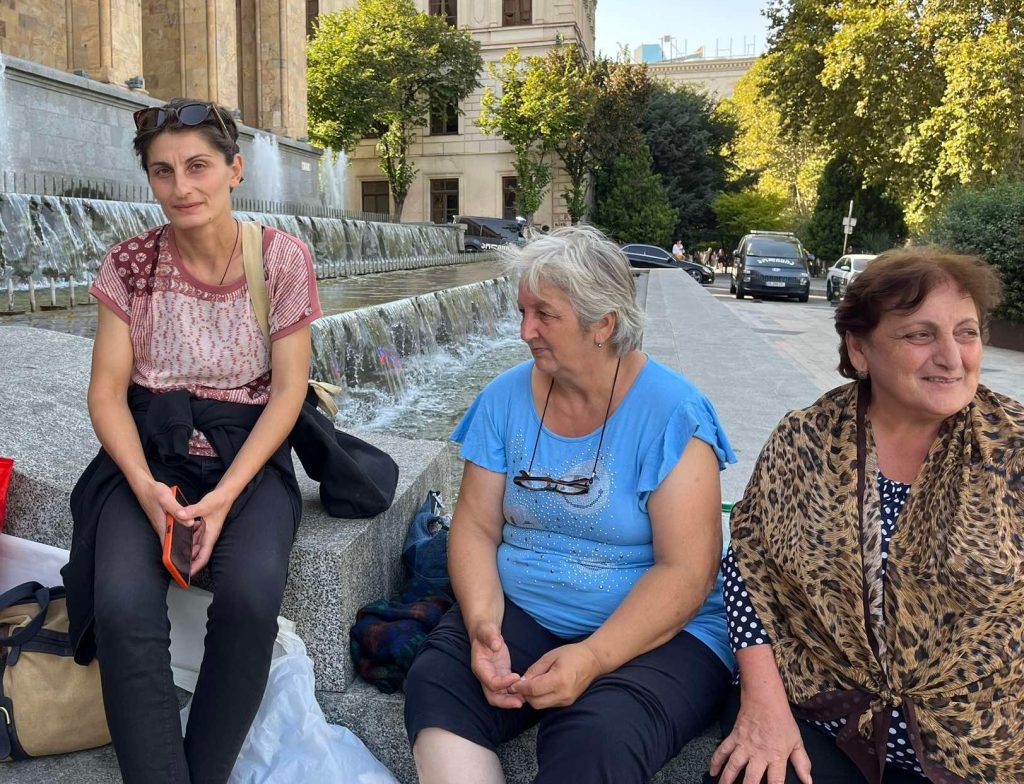
Nearby, Tamar Kupatadze points to Zoia and Dali, continuing the conversation: “A person worked and toiled all their life, saved on bread, didn’t eat or drink, their children lacked things, just to have their homes and the conditions they had. Then this company comes and destroys everything with a wave of the hand, saying, ‘I need to earn a billion, go wherever you want.’ Where are we supposed to go?”
Tamar lives in Shukruti with her husband and two children. She says they are particularly afraid of the night, autumn, and rains. “If water gets into the crack, who knows what will happen next? If someone dies, will they then tell us that the person lived in that house and therefore died?”
Giorgi Neparidze recalls that these issues began after the Tbilisi City Court appointed a special manager to eliminate environmental damage at Georgian Manganese in 2017. Before this, only one mine operated in the village—the Shukruti Central Mine. After the special manager was appointed, the company expanded its operations, opening 13 new mines in Shukruti and starting open-pit mining in two areas.
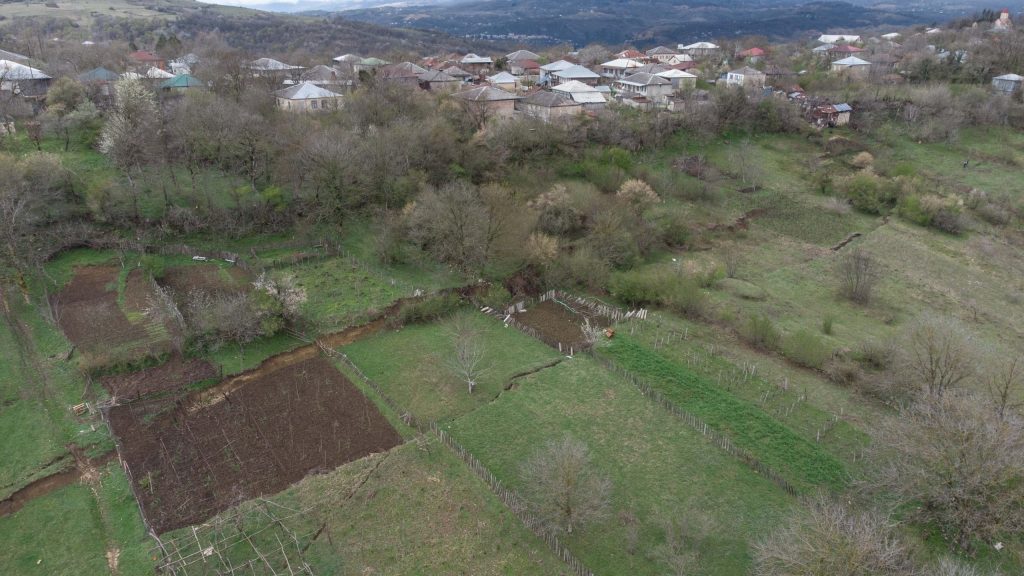
“Our village is situated on a hill and is a densely populated area with 282 families. It is now completely surrounded by a circle of mining operations. No company representative came to explain the consequences of such large-scale work before it began.
There is no expert assessment of the safety of living in our village or the potential consequences. Moreover, they reopened three closed mines, which were like support pillars for the village, closed during Soviet times to prevent collapse. Now they’re removing these support pillars,” Giorgi explains.
About a year after the mining operations began, the effects became visible: cracks appeared in yards and houses, the soil deformed, and some houses partially collapsed. This sparked protests from Shukruti residents. The first protest took place on September 5, 2019, at the mine entrances after residents’ pleas to authorities went unanswered.
“No one knows when, on what day, or at what time a collapse might happen. There’s a nearby village, Itkhvisi, where houses completely fell into a pit, creating 30-40 meter deep crevices. Within an hour, there were no more houses. Unfortunately, such a tragedy could happen here too, as in Shovi, and it’s being completely ignored,” Giorgi warns.
In 2021, an agreement with the company stipulated that an expert assessment would be conducted, and compensation or housing issues would be resolved based on its findings. However, Shukruti residents have never seen this assessment and suspect the company is withholding it.
Giorgi adds that there is an ongoing campaign to discredit the protesters, falsely claiming they received compensation from the company. He clarifies that only five or six families received advance payments, and the company failed to fulfill the 2021 contract terms. He says there have been attempts to intimidate the protest participants while the prime minister apparently has taken no interest in their plight, only echoing the company’s statements.
“When will the state intervene?! Does the company get to do whatever it wants until something fatal happens?” Giorgi questions.
Prime Minister Irakli Kobakhidze addressed the protests on September 13, stating that negotiations were the company’s responsibility and that protest organizers allegedly received tens of thousands of lari in compensation.
“They talk to us about laws and the Georgian Constitution, and yet our rights to health and life, private property, living in a peaceful and safe environment, and many other rights are being violated,” Giorgi says.
He emphasizes that Shukruti residents are willing to meet with any interested parties and provide documentation to support their claims.
“We are also citizens of this country, and we have the right to live here. If we don’t have the right to own what we have, let them come and say it directly. Everything we own —our parental homes, houses, land plots—is being destroyed, and they don’t want to take responsibility. We demand comparable safe housing in another safe location. We don’t ask for anything else.”
Company’s response
Chiatura Management Company, which now manages the Chiatura mining enterprises, took over from Georgian Manganese in February 2024 and inherited a memorandum signed with the local population, which included terms acceptable to both parties.
In a conversation with JAMnews, the company denied that the cracks in Shukruti homes were due to its operations, asserting that they had never worked in Shukruti or contacted local homes.
Representatives argue that “geological processes have been occurring since the 2000s, leading to land subsidence and resulting in surface cracks.”
“Georgian Manganese” did not conduct mining in Shukruti; mining beneath the village was carried out during the Soviet era. Consequently, the current risks and cracks in the homes stem from that period’s activities. Land subsidence over time has caused these surface cracks,” the company’s press office explained.
The company emphasizes that “Georgian Manganese” was viewed by locals as the successor to the Soviet-era mining operations, and the current claims reflect this misunderstanding.
Despite denying any work in Shukruti, the company reports having provided compensation to residents. It claims that up to 13 million lari (approximately $4.7 million) has been paid to 281 Shukruti residents.
When questioned about why compensation was issued if “Georgian Manganese” did not operate in Shukruti, the company explained that these payments were made “in response to ongoing requests from local residents” to alleviate socio-economic difficulties.
The company also stated that, following the compensation payments, it has reached an agreement with local residents to proceed with future mining activities in Shukruti.
“To address the existing issues, the company signed a memorandum with local residents in 2020, outlining the terms and conditions for compensation payments,” the press office told JAMnews.
Chiatura Management Company’s official Facebook page regularly posts bank statements to verify the compensation payments made to Shukruti residents.
The company’s stance is also prominently covered in state media.
A representative from Chiatura Management provided JAMnews with a contract from one of the protestors and a bank statement. The company asserts that this individual received compensation, suggesting that a “radical group” is attempting to extort money from them.
“Those who have not yet received compensation might be in different categories (according to the memorandum’s terms), such as the 2nd or 3rd category. The delay in payments is attributed to the actions of a radical group blocking the mines and preventing the company from operating. As a result, compensation payments have been halted, and Chiatura Management is incurring losses,” the company stated.
“Every time I return home, I find that the situation has changed, and some places are completely unrecognizable.”
Giorgi Neporidze has responded to the company’s allegations, calling them slander and propaganda aimed at discrediting Shukruti residents, involving both the state and government-controlled media. Neporidze questions why, if the protestors have received the compensation they were owed yet continue to demand more, the company has not reported this to the prosecutor’s office as extortion.
“If we are making conflicting statements, let the prosecutor’s office investigate the matter. They should determine who is manipulating the situation, who is spreading falsehoods, what payments have been made, and what contracts have been signed,” Neporidze said.
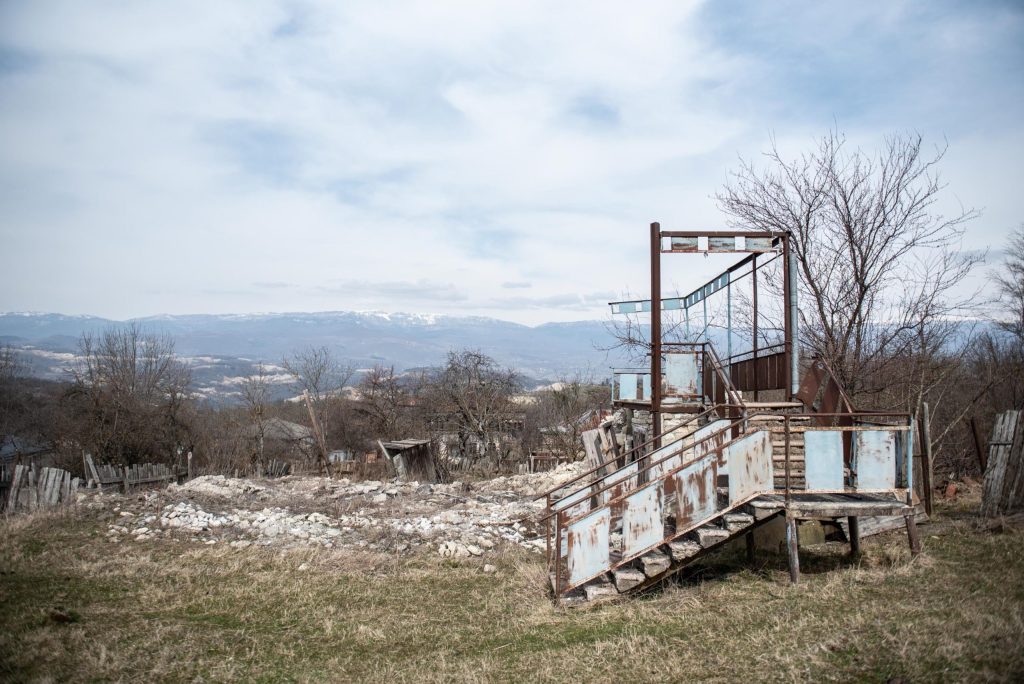
Giorgi Neporidze contends that the memorandum in question is illegal, claiming that it bears signatures of individuals who were either deceased or out of the country at the time of signing.
Mariam Nikuradze, a journalist and founder of OC Media who has been covering events in Shukruti since 2019, suggests that much of Shukruti and the neighboring village of Itkhvisi may soon be abandoned. According to Mariam, each visit to the village reveals a changing situation, often so drastic that some places are unrecognizable.
“Some houses that are still standing are literally on the brink of falling apart; they are being reinforced with iron and other materials. With each visit, the landscape changes so rapidly that it’s hard to keep track. For instance, cracks are appearing on roads; where there once was a smooth road, now there are bumps and dips; pipes that were underground are surfacing; graves, as locals say, are either submerged or completely buried and need to be relocated; the new church they started building has quickly developed cracks and remains unfinished; trees are drying out because water can’t be retained, and crops are failing for the same reason,” Mariam explains.
She also notes that a large crack in the shape of a mine shaft appeared along the road connecting the village just months before the start of the six-month-long protests.
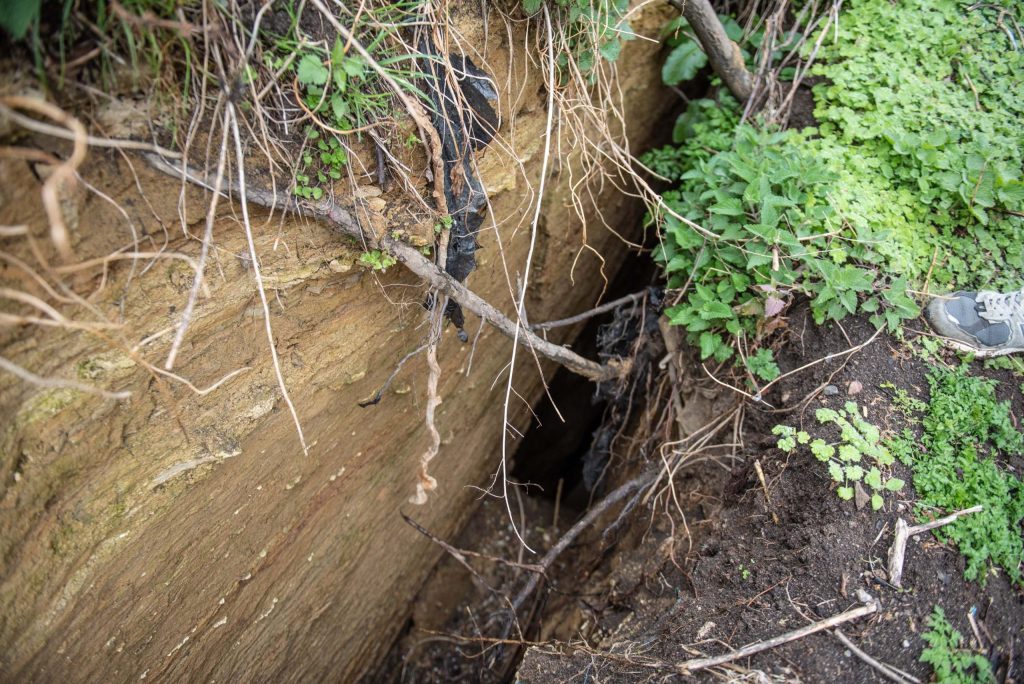
Mariam Nikuradze explains that the land in Shukruti is subsiding due to a process known as “subsidence.” This occurs when voids left by mining operations are filled with soil, causing the ground to settle at the level where mining was conducted. Nikuradze asserts that halting this process is impossible.
She also shares that she has personally documented several mines beneath the village.
“In 2020, I first filmed a mine running under Shukruti, and since then, whenever the weather permits, I monitor the situation with a drone. During my latest visit, I recorded between four to six mines clearly visible under the village of Shukruti. These are recent mines, not old or Soviet-era ones. There are operations with security, visible vehicles, and tractors. To claim that nothing is happening underground is an absolute lie. What I report is based on my direct observations, not someone else’s words. It is easy to verify this on-site,” says Mariam.
Salome Shubladze, Director of the Social Program at the Center for Social Justice, notes that a campaign is being conducted against the protesters, alleging they have already received compensation and are demanding more. Shubladze explains that during the 2021 protests, Shukruti residents sought not only compensation for damages but also safe housing.
“If determined that living in a particular house was impossible due to the extent of damage, the company committed to covering the so-called replacement cost, meaning the amount needed to purchase a new home with similar conditions. The amount paid to a few families was initial compensation — a private audit only assessed the damage, not the replacement cost necessary for a new house. The company only reimbursed these initial amounts to a few families,” says Shubladze.
She adds that there is still an obligation to assess each house, and the residents of Shukruti are demanding the fulfillment of the 2021 agreement. After compensating a few families, communication with the company was unilaterally halted.
“I suspect that since the protests ended and public pressure on the company decreased, the company took advantage of this and did not fulfill its obligations,” says Salome Shubladze.
The representative of the Center for Social Justice criticizes Prime Minister Kobakhidze’s statement, emphasizing that the company is under state management, with a government-appointed special manager who signs agreements with the Shukruti residents.
“The state has a direct obligation to immediately evacuate people if living in any village is unsafe, assess the existing conditions, and develop a methodology to meet the needs of these people and compensate for damages. This should in no way be subject to private negotiations or agreements,” says Shubladze.
She stresses that the first priority is to establish safety levels, and if there are conclusions from the Bureau of Forensic Expertise, they should be made public so people can access information that directly affects their physical safety.
“If any house is so hazardous that living there is risky, people must be evacuated immediately. Then the 2021 agreement should be fulfilled,” advises the expert.
She also points out that this issue affects more than just Shukruti residents — there is no unified methodology for assessing damage and relocating affected populations due to mining throughout the country. Shubladze emphasizes that assessments should be done before work begins, clarifying who might be affected, whether homeowners agree to the company’s use of their property, and under what conditions.
“Without general regulation, this will continue indefinitely — people will have to suffer and struggle to receive compensation or replacement,” concludes Shubladze.

